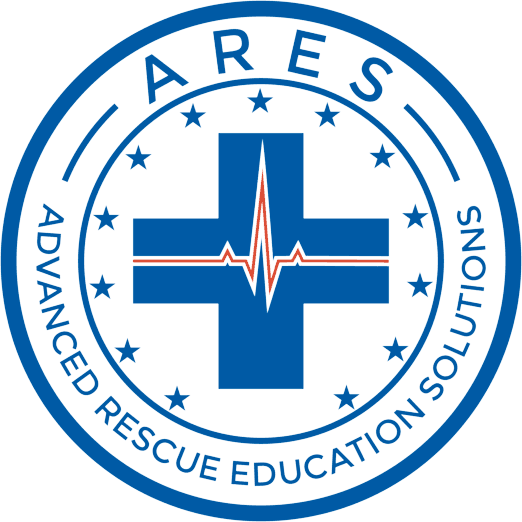PHTLS
PHTLS is recognized around the world as the leading Continuing Education program for prehospital emergency trauma care, per the National Association of Emergency Medical Technicians (NAEMT). The course was created in recognition of the real need in EMS education for additional training in the handling of trauma patients.
The course delivers the latest standards in prehospital trauma care using lectures and dynamic hands-on skill sessions such as rapid extrication, pediatric immobilization, and more. The course is designed to enhance the knowledge and skills of first responders, EMTs, paramedics, physicians, nurses, and other licensed health care professionals.
If you successfully complete the course you can earn 16 hours of CEUs of instructor-led credit for nurses, paramedics, and EMTs and a PHTLS provider certification valid for 4 years.
Required Materials
The PHTLS Ninth Edition textbook for the course must be purchased before the start of the course in order to complete the required readings due by the first day of class.
PHTLS: Prehospital Trauma Life Support, Ninth Edition
ISBN: 9781284171471 ENJOY A 25% DISCOUNT
We do not have textbooks available on-site.
AMLS
Advanced Medical Life Support (AMLS) remains the gold standard of education for emergency medical assessment and treatment. Endorsed by the National Association of EMS Physicians, AMLS emphasizes the use of the AMLS Assessment Pathway, a systematic tool for assessing and managing common medical conditions with urgent accuracy.
In the third edition of AMLS, students learn to recognize and manage common medical crises through realistic case-based scenarios that challenge students to apply their knowledge to highly critical patients. The course emphasizes the use of scene size-up, first impression, history, interactive group discussion on differential diagnosis and potential treatment strategies, and physical exam to systematically rule out and consider possibilities and probabilities in treating patients’ medical crises. The third edition AMLS library of patient simulations offers students an opportunity to apply critical thinking skills to a variety of patient presentations. Additional features include patient simulation monitor images and ECGs provided by iSimulate, to enhance students’ experience.
The course utilizes the AMLS textbook and course manual, and covers the following topics:
- Respiratory disorders
- Cardiovascular disorders
- Shock
- Sepsis
- Neurological disorders
- Endocrine/Metabolic disorders
- Environmental emergencies
- Infectious disease
- Abdominal disorders
- Toxicological emergencies
- Exposure to hazardous materials
- AMLS is appropriate for EMTs, paramedics, nurses, nurse practitioners, physician assistants, nurse anesthetists and physicians. AMLS is accredited by
- CAPCE and recognized by NREMT.
Emergency Pediatric Care (EPC)
The Emergency Pediatric Care (EPC) course focuses on critical pediatric physiology, illnesses, injuries and interventions to help EMS practitioners provide the best treatment for sick and injured children in the field. The course stresses critical thinking skills to help practitioners make the best decisions for their young patients.
Topics covered include:
- The pathophysiology of the most common critical pediatric emergency issues, and critical thinking skills to help practitioners make the best decisions for their patients.
- Application of the Pediatric Assessment Triangle (PAT), a tool to help EMS practitioners rapidly and accurately assess pediatric patients.
- The importance of family-centered care.
- Understanding and communicating with children.
- Airway management, breathing and oxygenation.
- Cardiac emergencies.
- Recognizing child abuse and neglect.
- Hypoperfusion and shock.
- Newborn resuscitation.
EPC is appropriate for EMTs, paramedics, emergency medical responders, nurses, nurse practitioners, physician assistants, and physicians. EPC is accredited by CAPCE and recognized by NREMT.
Geriatric Education for EMS (GEMS)
NAEMT’s Geriatric Education for EMS course prepares prehospital practitioners to respond to, assess, and care for this fast-growing patient population. This third edition of the course strengthens and enhances practitioners’ ability to provide the best care for older adults in every community.
The GEMS course helps EMS practitioners learn to conduct a comprehensive assessment of geriatric patients. Because the aging process affects all body systems, NAEMT’s course provides an overview of changes that occur as people age and describes how those changes can impact patient presentation. Incorporation of the GEMS Diamond (Geriatric, Environmental, Medical, and Social assessments) can help practitioners formulate a holistic diagnostic and treatment approach.
The third edition of GEMS addresses the following topics:
- Changes with age and assessment of the older patient
- Polypharmacy and Toxicity in Older Patients
- Respiratory Emergencies
- Cardiovascular Emergencies
- Trauma
- Other Medical Disorders
- Neurologic Emergencies
- Elder Maltreatment and Psychosocial Emergencies
- End-of-Life and Palliative Care
- Disaster Triage and Transporting Older Patients
- Left Ventricular Assist Devices
- Skin Disorders
- Ventilators
- Urinary Catheter and Colostomy Bag Care
- Implantable Cardioverter Defibrillators
The 8-hour course is appropriate for EMTs, paramedics, emergency medical responders, nurses, physician assistants and physicians. GEMS is accredited by CAPCE and recognized by NREMT.
CEU Hours: 16
Cost: $150
Course cost and dates subject to change.
First on the Scene (FOTS)
First on the Scene (FOTS), developed by NAEMT and the International Association of Fire Chiefs (IAFC), provides instructors with a toolkit to teach the general public basic emergency response to life-threatening emergencies until EMS arrives on the scene. Through lesson presentations and hands-on skill stations, participants will learn how to access help in the event of a life-threatening emergency and what to do until EMS arrives.
This course covers:
- Activating the 911 system
- Hands-only CPR and AED
- Administering naloxone
- Administering epinephrine
- Responding to life-threatening bleeding
- Penetrating chest trauma
- Moving patients to safety
- Positioning injured patients
Hours: 3
Cost: $65
Course cost and dates subject to change.
EMS Safety
NAEMT’s 3rd edition EMS Safety course teaches students how to protect themselves and their patients while on the job. It promotes a culture of safety and helps reduce the number of on-the-job fatalities and injuries. EMS Safety is the only national, comprehensive safety course for EMS practitioners. Its interactive format features real-life case studies and compelling discussions on current safety issues, and provides students with a forum to share their own experiences. Course activities allow students to apply critical thinking and best safety practices to EMS scenarios.
Students are taught to:
- Identify and manage the hazards that can appear during daily tasks, from offensive drivers to violent encounters to chronic stress.
- Describe and apply the principles of crew resource management in EMS.
- Apply techniques to maintain safe vehicle operations.
- List and assess strategies to apply in the field that improve patient safety.
- Identify strategies to ensure practitioner safety.
- Strengthen resilience skills and focus on personal health to combat both chronic and critical incident stress.
Topics covered include:
- How safety impacts patients and practitioners, from maintaining a culture of safety in changing situations to communication and documentation strategies.
- Crew resource management in EMS, modeling effective communication, maintaining situational awareness, and a being an effective member of a team.
- Emergency vehicle safety including maintenance and inspection considerations, responsibilities of due regard, defensive driving techniques, and common causes of vehicle collisions and strategies to avoid them.
- Safety in the roadway, including multi-agency pre-planning, vehicle and practitioner visibility techniques, and defensive staging practices.
- Patient safety, strategies to identify and prevent common patient errors, just culture, and safe handling techniques for all patients.
- Practitioner safety, situational awareness, and verbal, physical, and chemical techniques to deescalate potential threats.
- Injury and infection prevention and control.
- Practitioner personal health, resilience skills, and ensuring personal readiness for the daily challenges and hazards of working in the field.
EMS Safety is offered as an 8-hour classroom course and is appropriate for all levels of EMS practitioners, other medical professionals providing prehospital patient care, and EMS supervisors and administrators. Students who successfully complete the course receive a certificate of completion and a wallet card good for 4 years. EMS Safety is accredited by CAPCE and recognized by NREMT.
CEU Hours: 8
Cost: $100
Course cost and dates subject to change.


